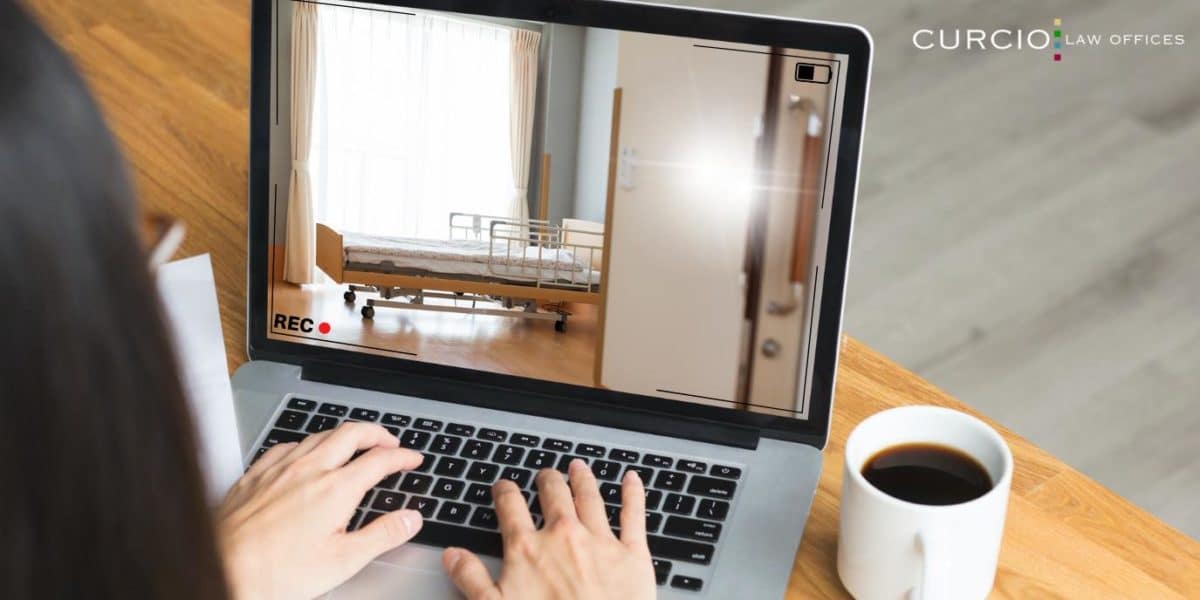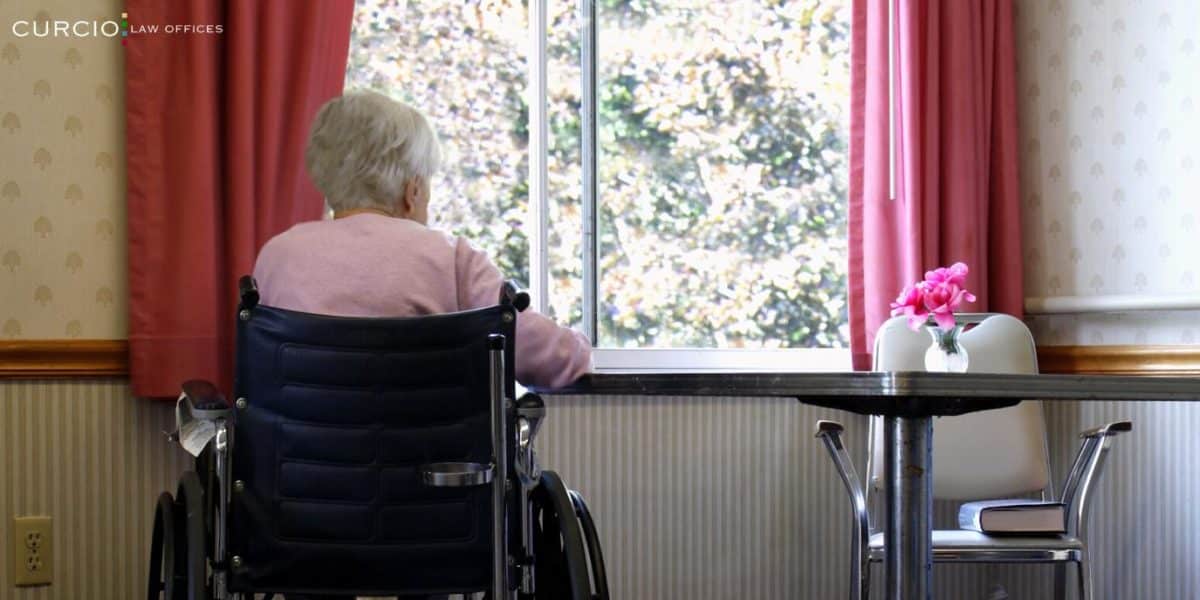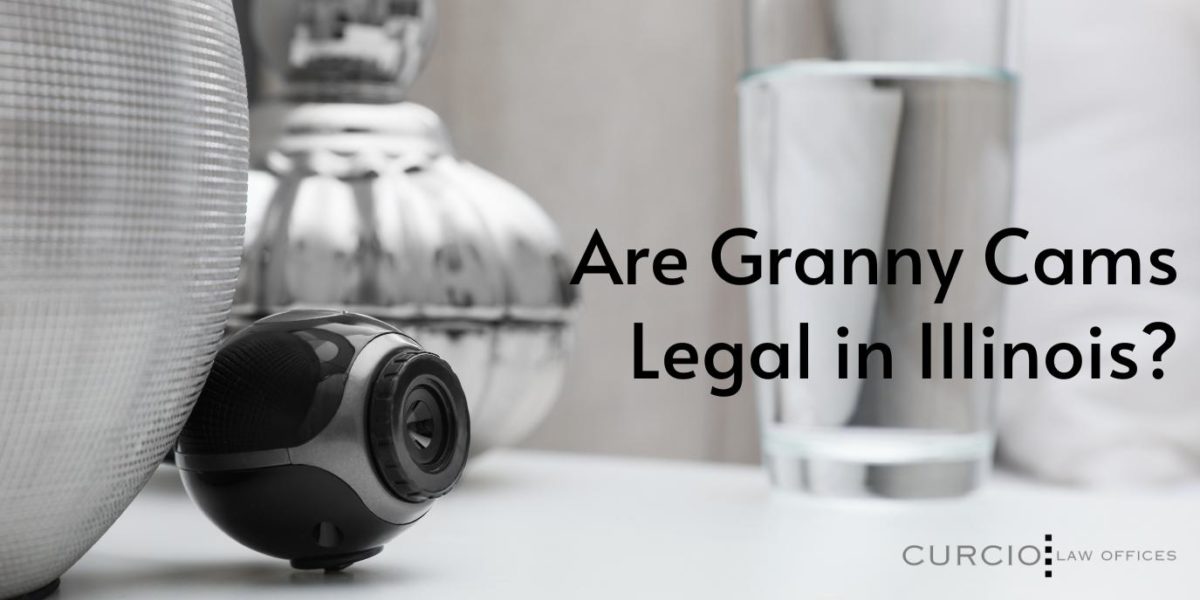For years, both the nanny cam and the granny cam have been a legal gray area. While there are no federal laws banning these types of cameras, some states have strict bans in place mostly due to privacy concerns. This fact begs the question: are granny cams legal in Illinois? The answer is yes, but there are plenty of rules about placing a video camera in a loved one’s room in order to document nursing home abuse or neglect. It’s crucial to speak with a Chicago elder law attorney at Curcio & Casciato before resorting to surveillance cameras in nursing homes. Call 312-321-1111 to schedule a free consultation with our legal team today.
What are Granny Cams?
Granny cams are nursing home cameras with live video feed that are placed in a resident’s room in plain sight.
Why Do People Put Granny Cams in Nursing Homes?
Family members may install surveillance cameras in their loved one’s rooms for a variety of reasons, including:
- They suspect abuse by staff members (verbal abuse, physical abuse, psychological abuse, sexual abuse, neglect, etc.)
- They suspect resident on resident abuse
- Ensuring that their loved ones are receiving daily meals and medications
- Ensuring that their loved one is receiving help with mobility and completing personal hygiene tasks

Illinois Granny Cam Laws
As of now, there is no federal law banning cameras in nursing homes, but individual states have their own electronic surveillance laws, which means they have full authority to ban granny cams.
So – are granny cams legal in Illinois? Yes, Illinois is one of several states that allows surveillance cameras in assisted living facilities. Listed below are the other states that are currently allowing granny cams:
- Connecticut
- Kansas
- Louisiana
- Maryland
- Minnesota
- Missouri
- New Jersey
- New Mexico
- Ohio
- Oklahoma
- Texas
- Utah
- Virginia
- Washington
- Wisconsin
It’s important to note that the specifics of authorized electronic monitoring differ in each state. Some states only allow video cameras with no audio recording, some states specify that you can’t have a hidden camera (only a camera in plain sight), and some states require strict consent from all parties involved. So before you install a camera in your loved one’s assisted living facility, be sure to read up on your specific state laws.
Illinois law states that a family member is legally allowed to place a surveillance camera in their loved one’s room as long as the camera doesn’t take “still photographs” or allow “non consensual interception of private communications.”
There are also rules regarding granny cams in assisted living facilities that specifically house residents with dementia. Video cameras are only allowed in rooms that are located in a building entirely dedicated to dementia care.
Consent
Consent is crucial when it comes to granny cams in nursing home rooms. Nursing home residents – and their roommates – must consent to having a video camera in their room. This means that hidden cameras are not allowed, because the resident can’t consent to it if they don’t know about it.
If the resident or their roommate does not have the mental capacity to understand the benefits and consequences of a nursing home camera (due to Alzheimer’s or dementia, for example), then one of the following parties must provide consent:
- The resident’s power of attorney,
- The resident’s spouse,
- The resident’s adult child (they must also have a written statement from the other adult children stating that they are the sole decision-maker regarding their parent’s care),
- Or the resident’s adult sibling (the sibling must also have a written statement from the other adult siblings stating that they are the sole decision-maker regarding their parent’s care).
The nursing home resident (or their roommate) can withdraw consent at any time. If this happens, the granny cam must be removed from the resident’s room. Whether or not the resident/roommate consents must be clearly documented.
Nursing home residents and/or roommates can request specific boundaries with the surveillance camera such as no audio recording, no broadcasting audio/video, turning off the audio or video during private and vulnerable moments, etc. If nursing home residents make any requests like this, then they must be obeyed.
Notifying the Nursing Facility
Nursing home administrators (and the facility as a whole) must receive prior notice in order to have the granny cam installed. Again, this means that hidden cameras are not allowed. Not only does your loved one (and other residents) have to consent to it, but so does the facility. None of these parties can consent if they do not know about the camera in the first place.
Family members can only begin recording in patient rooms after they have submitted notification and consent forms to the assisted living center. These forms must contain the following information:
- The resident’s signature, which indicates consent to the granny cam
- The roommate’s signature, which indicates consent to the granny cam
- If the resident/roommate doesn’t have the mental capacity to consent to this, then a POA or family member must sign
- If a representative signed on behalf of the resident/roommate, then they must also include the date the resident was asked, who was present when the resident was asked, and a statement that they resident didn’t object to the granny cam
- The type of video camera being used
- Camera installation needs, such as mounts
- The desired date of installation
- A contract about regular camera maintenance
- A list of specific requests from the resident/roommate (no audio, turning off the camera while the resident is completing personal hygiene tasks, etc.)
Other Ways to Protect Your Loved One From Nursing Home Abuse and Neglect
While a security camera is a great way to catch abuse and neglect in action, having a camera installed may violate the resident’s privacy one way or another. Even though family members have good intentions with granny cams, some residents feel uncomfortable with the idea anyway. They may already feel dehumanized in their nursing home – especially depending on how they’re being treated by staff members – so a granny cam may make this feeling even worse.
With that being said, there are other ways to ensure that your loved one is being treated with respect and dignity.
- Visit Often: Visit your loved one often to get a good idea of their physical and mental well being. If you can’t visit, figure out a way to FaceTime your loved one. Either of these options will help you get an idea if they’re being fed, bathed, socialized, etc.
- Check Their Medical Records: If you are your loved one’s POA (or if they give you consent), you can check their medical records for bedsores, frequent infections, medication errors, falls, unreasonable restraints, choking injuries, and more. Medical records are one of the best ways to figure out if abuse or neglect is occurring.
- Consider a Different Nursing Home: If you have a gut feeling that your loved one is unhappy and not being treated well at their facility, you can remove them and find a better facility.
- Contact a Chicago Elder Law Attorney: It’s always a good idea to consult with a legal professional whether you suspect nursing home abuse or you’re just trying to navigate Illinois granny cam laws. At Curcio & Casciato, we prioritize your loved one’s well being. We can help you find the best solution for your situation.

Call a Chicago Nursing Home Abuse and Neglect Lawyer at Curcio & Casciato Today
Privacy laws are complex when it comes to nursing home cameras. There are so many hoops you have to jump through before you can start recording in a nursing home room. Chicago elder abuse lawyers at Curcio & Casciato can help you determine whether placing a granny cam in a patient’s room is the best solution for your current situation. We can also help you make sure that you’re following all the Illinois laws relating to surveillance cameras in nursing homes. Call us today at 312-321-1111 to schedule a free consultation today.



